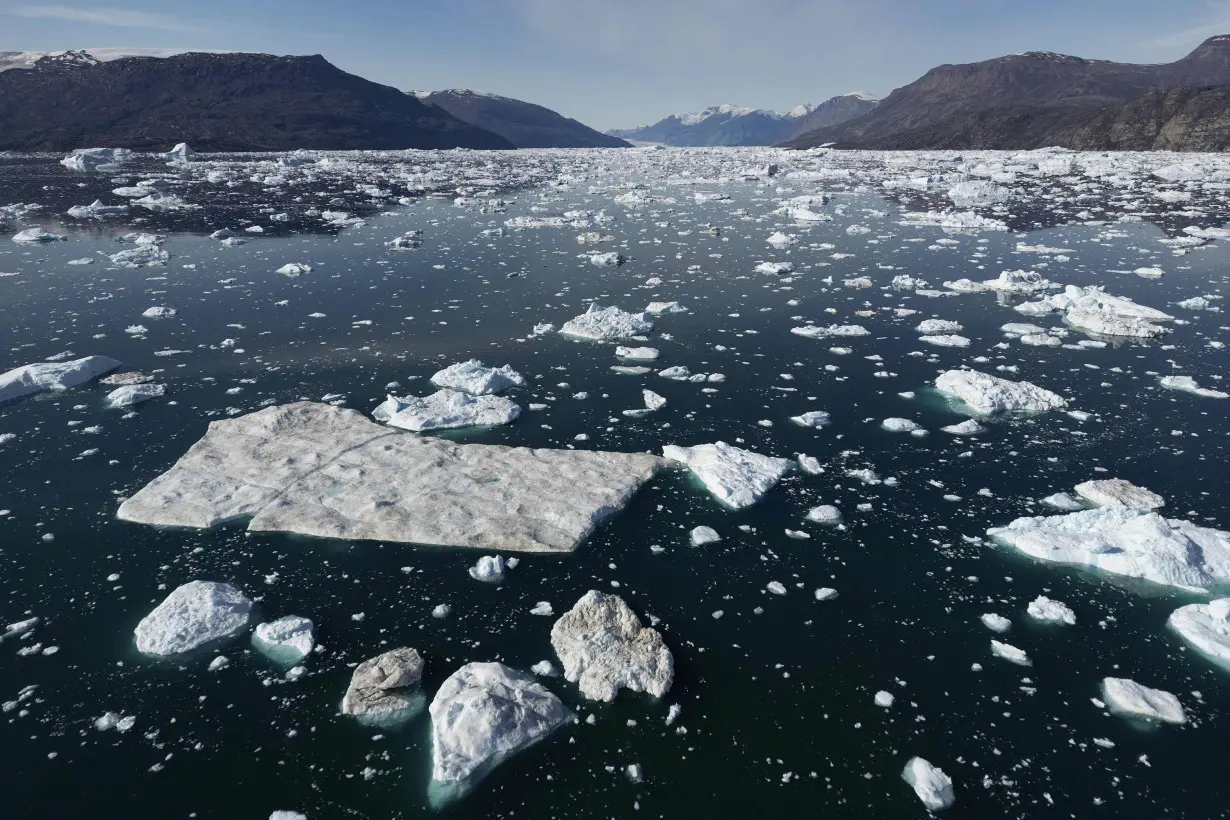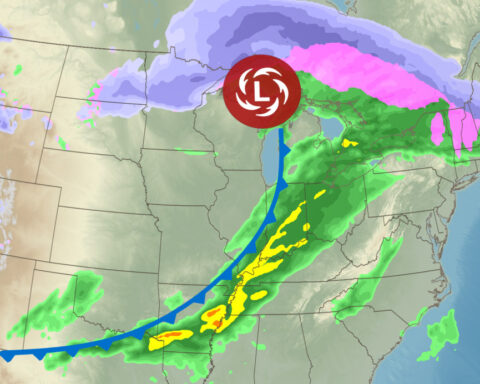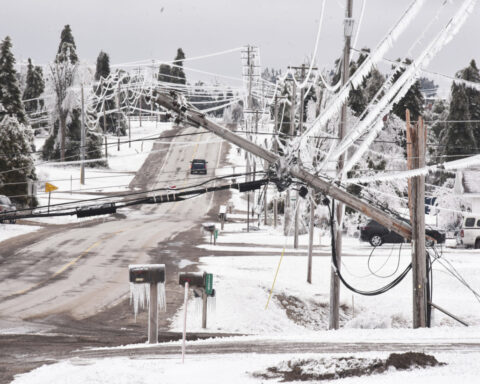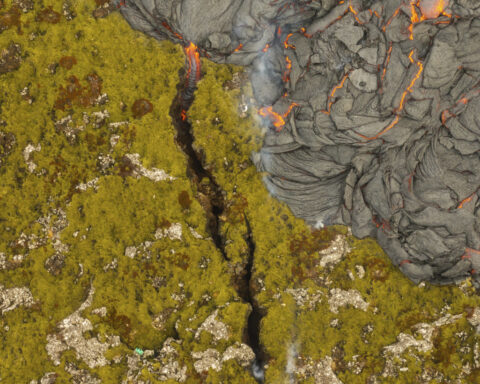(CNN) — The impacts of human-caused climate change are so overwhelming they’re actually messing with time, according to new research.
Polar ice melt caused by global warming is changing the speed of Earth’s rotation and increasing the length of each day, in a trend set to accelerate over this century as humans continue to pump out planet-heating pollution, according to the study published Monday in the Proceedings of the National Academy of Sciences.
The changes are small — a matter of milliseconds a day — but in our high-tech, hyperconnected world have an important impact on computing systems we have come to rely on, including GPS.
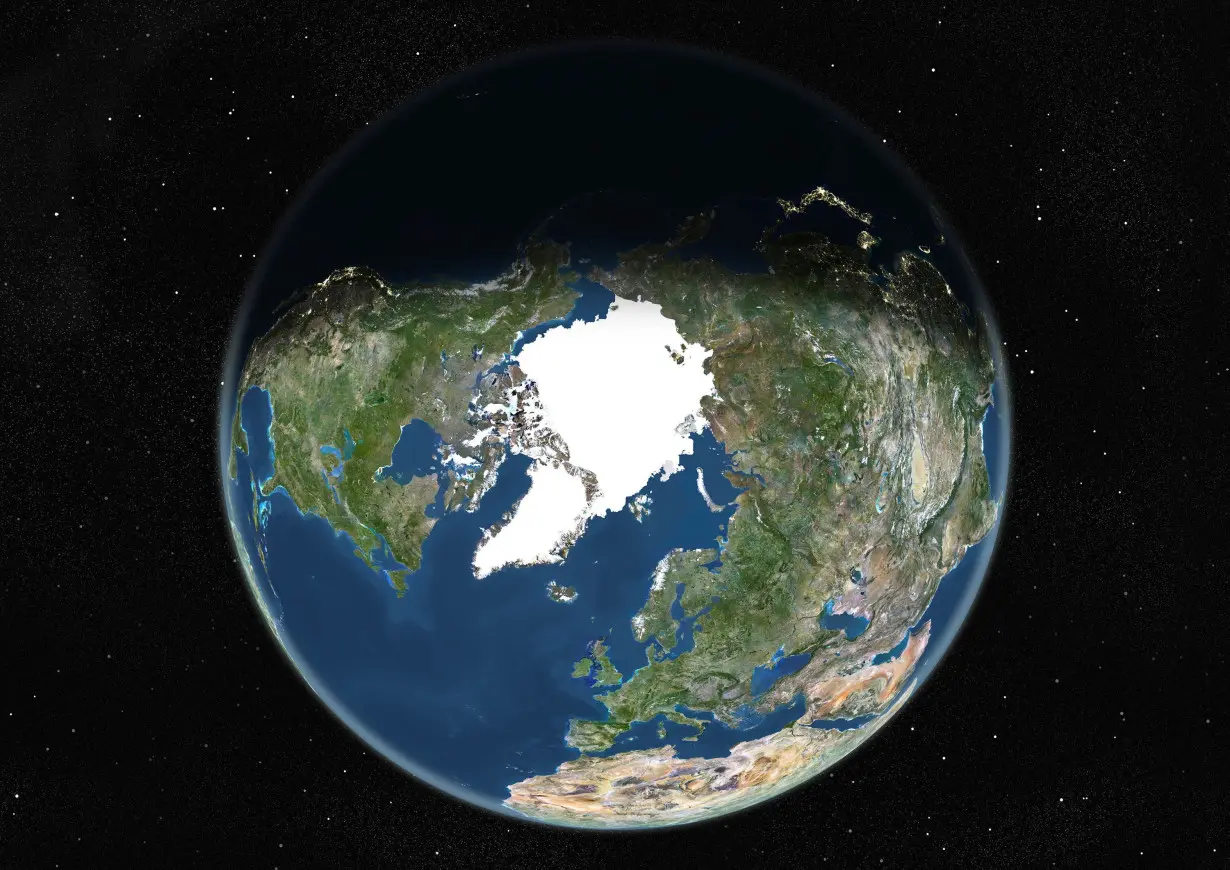
It’s yet another sign of the huge impact humans are having on the planet. “This is a testament to the gravity of ongoing climate change,” said Surendra Adhikari, a geophysicist at NASA’s Jet Propulsion Laboratory, and a report author.
The number of hours, minutes and seconds making up each day on Earth are dictated by the speed of the Earth’s rotation, which is influenced by a complex knot of factors. These include processes in the planet’s fluid core, the ongoing impact of the melting of huge glaciers after the last ice age, as well as melting polar ice due to climate change.
For millennia, however, the impact of the moon has dominated, increasing the length of a day by a few milliseconds per century. The moon exerts a pull on Earth causing the oceans to bulge towards it, gradually slowing Earth’s rotation.
Scientists have previously made connections between polar ice melt and longer days, but the new research suggests global warming is a bigger influence on time than recent studies have shown.
In the past, the impact of climate change on time “has not been so dramatic,” said Benedikt Soja, a study author and assistant professor of space geodesy at the Swiss university ETH Zurich.
But that could be changing. If the world continues to pump out planet-heating pollution, “climate change could become the new dominant factor,” outpacing the moon’s role, he told CNN.
It works like this: As humans warm the world, glaciers and ice sheets are melting, and that meltwater is flowing from the poles toward the equator. This changes the planet’s shape — flattening it at the poles and making it bulge more in the middle — slowing its rotation.
The process is often compared to a spinning ice skater. When the skater pulls their arms in towards their body, they spin faster. But if they move their arms outwards, away from their body, their spin slows.
The team of international scientists looked at a 200-year period, between 1900 and 2100, using observational data and climate models to understand how climate change has affected day length in the past and to project its role in future.
They found the impact of climate change on day length has increased significantly.
Climate change-fueled sea level rise caused the length of a day to vary between 0.3 and 1 milliseconds in the 20th century. Over the past two decades, however, the scientists calculated an increase in day length of 1.33 milliseconds per century, “significantly higher than at any time in the 20th century,” according to the report.
If planet-heating pollution continues to rise, warming the oceans and accelerating ice loss in Greenland and Antarctica, the rate of change is set to soar, the report found. If the world is unable to rein in emissions, climate change could increase the length of a day by 2.62 milliseconds by the end of the century — overtaking the natural impacts of the moon.
“In barely 200 years, we will have altered the Earth’s climate system so much that we are witnessing its impact on the very way Earth spins,” Adhikari told CNN.
A few milliseconds of additional time a day may be imperceptible to humans but it has an impact on technology.
Precise timekeeping is vital for GPS, which everyone with a smartphone will have, as well as other communication and navigation systems. These use highly precise atomic time, based on the frequency of certain atoms.
From the late 1960s, the world started using coordinated universal time (UTC) to set time zones. UTC relies on atomic clocks but still keeps pace with the planet’s rotation. That means at some point “leap seconds” need to be added or subtracted to keep alignment with the Earth’s rotation.
Some studies have also suggested a correlation between an increase in day length and an increase in earthquakes, said Mostafa Kiani Shahvandi, a study author and a geoscientist at ETH Zurich. But the connection remains speculative and much more research needs to be done to establish any clear link, he told CNN.
A paper on the same topic published in March concluded that while climate change was increasingly slowing the Earth’s rotation, processes in the Earth’s core could be more important and actually be speeding it up, shortening day length.
“What we have done is to go a little bit further and re-estimate these trends,” said Shahvandi. They found any influence from the molten core was outweighed by that of climate change.
Duncan Agnew, professor of geophysics at the University of California San Diego and author of the March study, said the new study still meshes with his research, “and is valuable because it extends the result further into the future and looks at more than one climate scenario.”
Jacqueline McCleary, an assistant professor in physics at Northeastern University who was not involved in the study, said the new research helps inform “a decades-long debate over what role, exactly, climate change will play in the changing length of the day.”
While there is now general agreement climate change will have a “net lengthening effect on the day,” she told CNN, there has still been uncertainty about which processes affecting time will dominate this century. This study concludes climate change is now the second-most dominant factor, she said.
It’s a sobering conclusion, said ETH Zurich’s Soja. “We have to consider that we are now influencing Earth’s orientation in space so much that we are dominating effects that have been in action for billions of years.”
The-CNN-Wire
™ & © 2024 Cable News Network, Inc., a Warner Bros. Discovery Company. All rights reserved.

 Trump has begun another trade war. Here's a timeline of how we got here
Trump has begun another trade war. Here's a timeline of how we got here
 Canada's leader laments lost friendship with US in town that sheltered stranded Americans after 9/11
Canada's leader laments lost friendship with US in town that sheltered stranded Americans after 9/11
 Chinese EV giant BYD's fourth-quarter profit leaps 73%
Chinese EV giant BYD's fourth-quarter profit leaps 73%
 You're an American in another land? Prepare to talk about the why and how of Trump 2.0
You're an American in another land? Prepare to talk about the why and how of Trump 2.0
 Chalk talk: Star power, top teams and No. 5 seeds headline the women's March Madness Sweet 16
Chalk talk: Star power, top teams and No. 5 seeds headline the women's March Madness Sweet 16
 Purdue returns to Sweet 16 with 76-62 win over McNeese in March Madness
Purdue returns to Sweet 16 with 76-62 win over McNeese in March Madness
